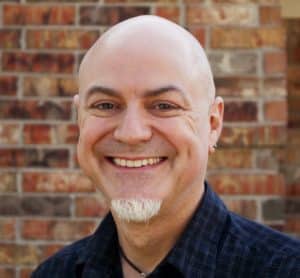The Morrison-Novakovic Center for Faith and Public Policy at Davis & Elkins College will present a public lecture focusing on the nature and limitations of popular propaganda at 5 p.m. Monday, Sept. 19 in Myles Center for the Arts Senate Commons. Dr. Nathan Crick, professor of communication at Texas A&M University, will deliver the talk titled “Machiavelli, Savonarola, and the Propaganda of Appearances.”
In this lecture, Crick will explain the propaganda of appearances, a form of popular rhetoric that responds to catastrophe by interpreting appearances through myth. The lecture will explore the nature of popular propaganda to show its limits in dealing with a crisis.
Crick studies the role of rhetoric in the dynamic relationship between permanence and change. His recent work has explored the contemporary relevance of Italian Renaissance philosopher Niccolo Machiavelli to modern politics and the rhetorical challenges presented by climate change and technology. Drawing from knowledge of classical, pragmatic and continental philosophy, he investigates the rhetorical character of the arts, sciences, religion and journalism within specific moments of history characterized by disruptions in the structures of power.
“I’m excited to welcome Crick to campus,” Dr. Andrew Jones, interim director for the Morrison-Novakovic Center for Faith and Public Policy, said. “He is a dynamic and engaging speaker, and his work spans topics from the drama of classical Greece to contemporary social movements.”
A native of Massachusetts, Crick studied environmental science and journalism at University of Massachusetts before working as a journalist in upper state New York and then a science museum educator in Portland, Oregon.
After earning his Ph.D. from the University of Pittsburgh, he taught for seven years at Louisiana State University before joining Texas A&M in 2013. His early work explored the rhetorical character of American pragmatism and the work of John Dewey, focusing specifically on how a rhetoric informed by the aesthetics, logic and ethics of pragmatism can enrich democratic practice. Subsequent reading of history led to more specialized works that explored the relationship between rhetoric and power in Classical Greek thought, American Transcendentalism, and the periods of the Italian and Irish Renaissances. These historical inquiries inspired an expanded interest in media ecology, social movements, the rise of fascism, the methods of propaganda, and the practice of democratic pedagogy and self-making.
Opened in 2016, the Morrison-Novakovic Center for Faith and Public Policy provides an open space where students, faculty, visiting scholars and others can explore issues of faith, and social and public policy. It is named for D&E Trustee and alumnus David Morrison ’79 and his wife, Phebe Novakovic.
For additional information on the lecture, email Jones at jonesa7@dewv.edu.

Nathan Crick

